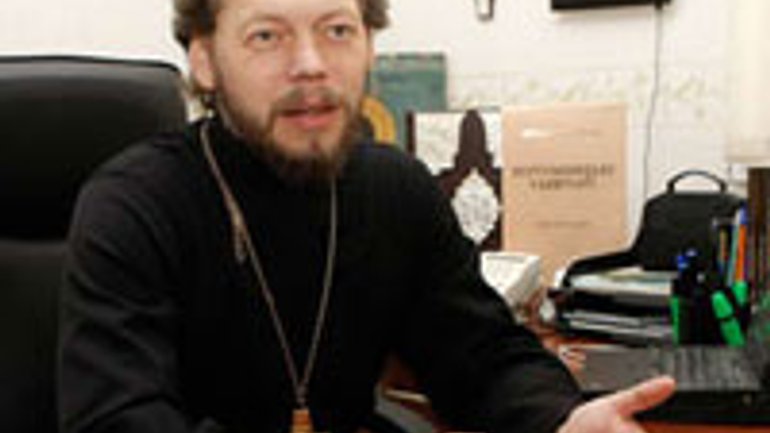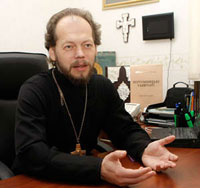UOC-Moscow Patriarchate Clarifies Its Position on Language Issues

As RISU reported earlier, on 25 May, the All-Ukrainian Council of Churches and Religious Organizations (AUCCRO) called for Ukrainian deputies not to submit for the Parliament’s consideration bills “which harm the normal constitutional functioning of the Ukrainian language,” especially Bill 9073 “On Principles of State Language Policy” by S. Kivalov and V. Kolesnichenko (Party of Regions) in an address to the Head of the Supreme Council, Volodymyr Lytvyn and the people’s deputies signed by the Chairman of AUCCRO, Patriarch Sviatoslav (Shevchuk) of the Ukrainian Greek Catholic Church. Attached to the address was the address of AUCCRO of 2006 regarding the language problems and threat of separatism which was signed by Ukrainian Church leaders including Metropolitan Volodymyr (Sabodan) of UOC-MP.
According to  Orthodoxy in Ukraine, Head of the Synod’s Education and Information Department of the Ukrainian Orthodox Church-Moscow Patriarchate (UOC-MP), Protopriest Heorhii Kovalenko officially commented on the position of UOC-MP in this regard:
Orthodoxy in Ukraine, Head of the Synod’s Education and Information Department of the Ukrainian Orthodox Church-Moscow Patriarchate (UOC-MP), Protopriest Heorhii Kovalenko officially commented on the position of UOC-MP in this regard:
“The Press Service of the Head of the Ukrainian Orthodox Church states that His Beatitude Metropolitan Volodymyr of Kyiv and All Ukraine did not sign any new statements or addresses in connection with the recent situation resulting from consideration of bills by the Supreme Council of Ukraine.
In reality, the Secretariat of the All-Ukrainian Council of Churches and Religious Organizations has actualized the address of 2006 which was indeed signed by the Head of UOC and which calls to seek understanding and mutual respect, unity of the people and the world in the state.
As for the language issue, there is no such issue in the Ukrainian Orthodox Church. The main service language for us is the Church Slavonic but services are celebrated in Ukrainian and Romanian according to the wish of the communities and with the blessing of the ruling bishops. The language of preaching in our Church is one which is more convenient to use for priests and which is better received by the communities of the Churches or monasteries. There are no restrictions here either: representatives of UOC preach in Ukrainian, Russian, Romanian, Georgian and even in the language of modern technologies (TV, radio, internet). For us the content is the priority and not the form. Language forms and technologies vary but “Jesus Christ is the same yesterday, today and for ever.” (Hebr. 13:8)
This is the attitude to the language and language issues which we would like politicians and journalists to show,” reads the commentary.









